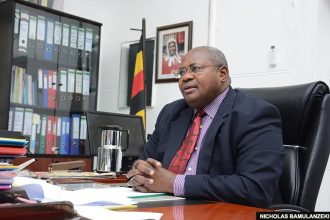Uganda marked World Epilepsy Day with a significant milestone as it launched the commencement of epilepsy surgery to be performed by Ugandan doctors, addressing a crucial healthcare need within the country.
According to data from Makerere University School of Public Health, approximately 1 to 2 per cent of Uganda’s population grapples with epilepsy, with higher prevalence rates reported in parts of Eastern, Central, and Western Uganda, while the Northern Region records comparatively lower figures.
Dr. Angelina Kakooza, a child Neurologist and associate professor of paediatrics, highlighted the development of local capacity to conduct epilepsy surgeries, a process initially pioneered by American doctors at Cure Hospital-Mbale. The surgical procedure involves removing the brain area responsible for seizures.
Dr. Kakooza emphasized the importance of thorough patient evaluations to determine the suitability of surgery. While acknowledging that surgery may not be viable for all patients, particularly if seizures occur in multiple brain regions, she noted its potential efficacy when traditional treatments fail to control seizures.
Dr. Juliet Nakku, Executive Director of Butabika National Referral Hospital, underscored the prevalent myths and misconceptions surrounding epilepsy, which often deter individuals from seeking medical treatment. She emphasized the need for comprehensive awareness campaigns to dispel these myths and encourage affected individuals to access medical care.
Highlighting the significance of epilepsy surgery, Dr. Nakku explained that neurosurgeons will identify and remove brain regions exhibiting abnormal electrical activity, providing relief from seizures for patients undergoing the procedure. She reassured the public of the availability of trained experts within Uganda to perform these surgeries, ensuring accessible and effective treatment options.
Dr. Richard Idro, Associate Professor of Paediatrics and Child Health at Makerere University, emphasized ongoing collaborations with various institutions to expand local expertise in epilepsy surgery. These efforts aim to bolster the country’s capacity to provide comprehensive epilepsy care and treatment options.
The inauguration of epilepsy surgery services in Uganda coincides with International Epilepsy Day, observed annually on the 2nd Monday of February. This global initiative aims to raise awareness about epilepsy, promote understanding of the condition, and advocate for equitable access to treatment for all affected individuals.




















